|
Do you want to be healthy? Of course, you do! And protein is a key component to achieving and maintaining good health. Protein is essential for repairing and building muscle, and it also helps keep your metabolism running efficiently. In this blog post, we will discuss the benefits of protein and how much you need each day to stay healthy. We will also provide a list of protein-rich foods that you can add to your diet!
What is Protein? Protein is a macronutrient that is essential to the human body. It is made up of amino acids, which are the building blocks of muscle tissue. Protein plays a vital role in many bodily functions, including cell repair, hormone production, and immune system function. Without protein, our bodies would not be able to function properly! The Benefits of Protein Protein is important for many reasons. As we mentioned before, protein is necessary for repairing and building muscle tissue. But protein also helps to keep you feeling full after eating, stabilizes blood sugar levels, and provides energy throughout the day. Adding protein to your diet can also help you lose weight and maintain healthy body composition. And if that wasn’t enough, protein is also essential for a strong immune system. How Much Protein Do I Need? The amount of protein you need depends on your age, weight, and activity level. The general recommended intake for protein is 0.36 grams per pound of body weight. So, if you weigh 150 pounds, you would need 54 grams of protein each day. However, if you are very active or are trying to build muscle, you may need more protein than the average person. Consult with a registered dietitian or nutritionist to determine how much protein you should be consuming each day. Protein-Rich Foods to Add to Your Diet There are many delicious and healthy foods that are high in protein! Some of our favorites include lean meats, fish, poultry, eggs, dairy products, legumes, nuts, and seeds. Adding these protein-rich foods to your diet is a great way to make sure you’re getting all the protein your body needs. The risks associated with a high-protein diet are minimal, but it’s important to make sure you’re getting protein from healthy sources. Processed meats, such as bacon and sausage, are often high in saturated fat and sodium. And while fried chicken and cheeseburgers may be protein-rich, they are not the best choices for a healthy diet. Stick to lean protein sources, such as grilled chicken or fish, tofu, legumes, and nuts. These foods will help you meet your protein needs without jeopardizing your health! We hope this blog post has helped you better understand the importance of protein and how to make sure you’re getting enough of it each day. Protein is essential for good health, so be sure to add plenty of protein-rich foods to your diet! And if you have any questions, be sure to consult with a registered dietitian or nutritionist. They can help you create a healthy protein-packed meal plan that meets all of your needs!
0 Comments
Primary care is the foundation of a healthy lifestyle and the best way to manage chronic conditions. Primary care physicians serve as our connection to healthcare and can help with everything from vaccinations to treatment for a specific disease. If you’re looking for an excellent primary care physician, you’ve come to the right place. This blog post explains why everyone needs a PCP, why they are so important, and how you can find one near you. We also provide tips on how to choose the right PCP, as well as some helpful resources if you don’t have one yet. What is a Primary Care Physician? A primary care physician (PCP) is a general practitioner who provides holistic care for patients of all ages and walks of life. Primary care physicians manage chronic conditions, provide preventative care, and even give immunizations. They act as the hub of your healthcare, connecting and coordinating with specialists, other healthcare providers, and you to help you stay healthy and live a long and happy life. Not only are PCPs your first line of medical defense, they also serve as trusted medical advisors who can guide you through the medical system, particularly in times of crisis. Choosing a PCP who is right for you and your family can have a significant impact on your health and well-being over the years. Why Everyone Needs a Primary Care Physician Primary care physicians are the hub of your healthcare team, coordinating and integrating your care with specialists and other healthcare providers. Choosing a PCP who is right for you can have a significant impact on your health and well-being over the years, from childhood through adulthood and into old age. PCPs can help you prevent or manage chronic conditions, such as diabetes or high blood pressure, that otherwise require long-term care and monitoring. The treatment for these conditions can be complex, requiring frequent appointments and the collaboration of several specialists. PCPs can also help you and your family through hyper-acute health emergencies, such as car accidents or a sudden illness. They can provide emergency care and help you get the care you need from other specialists. How to Find a Good PCP It can be difficult to find the right physician for yourself or your family if you don’t know where to start. Here are a few tips to help you find the right PCP: - Ask friends and family: Word of mouth is the best way to find a PCP. If you have a friend who loves their PCP, ask them who they recommend. If you have family members who are already seeing a PCP, you can ask them who they recommend. You can also ask your primary care staff at work. - Ask your primary care staff: Physicians and medical students at your primary care facility are also a great resource. Ask your primary care staff which physicians they recommend. - Ask your insurance company: Many insurance companies have a list of physicians in your area. - Visit a provider website: Many physicians have a website that lists the services they provide and a directory of the types of patients they see. You can use this information to help you decide if that physician is the right fit for you. - Find a PCP in your area: If you don’t have a PCP yet, there are a few ways you can do that. Start with the two websites below that can help you find a PCP near you. - Find a PCP by setting: If you or your family member has a specific condition or disease, you can use this website to find a PCP who specializes in that type of care. - Find a PCP by specialty: If you don’t have a specific condition but are more interested in finding a PCP who specializes in a certain field, you can do that here. PCP Responsibilities Doctors are medical professionals who have chosen a path that is both rewarding and challenging. Primary care physicians deal with a variety of medical conditions, illnesses, and complaints. They work with individuals and families, both young and old. When someone has a medical concern, they are referred to a PCP for evaluation and treatment. PCPs are trained to recognize symptoms of common illnesses and injuries, and provide appropriate treatments. They also diagnose and treat long-term chronic illnesses. PCPs can be generalists or specialists, though most are generalists. A PCP can be a family doctor, an internist, a pediatrician, or a general practitioner. Here are some examples of common PCP responsibilities: Diagnosing and treating common medical issues, such as infections, allergies, broken bones, and sprains - Treating long-term and chronic medical issues, such as diabetes, high blood pressure, or heart disease - Managing pregnancy, prenatal care, and newborns - Prescribing medications for common problems and chronic conditions - Vaccinating patients to prevent infectious diseases A primary care physician (PCP) is a general practitioner who provides holistic care for patients of all ages and walks of life. Primary care physicians manage chronic conditions, provide preventative care, and even give immunizations. They act as the hub of your healthcare, connecting and coordinating with specialists, other healthcare providers, and you to help you stay healthy and live a long and happy life. Choosing a PCP who is right for you can have a significant impact on your health and well-being over the years. How to find a good PCP? Ask friends and family. Ask primary care staff. Ask your insurance company. Visit a provider website. Find a PCP in your area. Start by setting and specialty.
Living a healthy life is important for everyone. It's especially important if you want to avoid diseases and live a long, happy life. In this blog post, we will discuss the top 10 foods that will help you live a healthy life. These foods are nutritious and will help keep your body healthy and functioning at its best! So, without further ado, here are the top ten foods for a healthy lifestyle: 1. Fruits: Fruits are a great source of vitamins, minerals, and fiber. They can help improve your digestion and reduce your risk of heart disease. Some good sources of fruits include apples, bananas, oranges, and carrots. You can also get them from dried fruit or vegetable juices. Fruits are an important part of a healthy diet, so make sure to include plenty of them in your meals! 2. Vegetables: Vegetables are a great source of vitamins, minerals, and fiber. They can help improve your digestion and reduce your risk of heart disease. Some good sources of vegetables include carrots, spinach, and broccoli. You can also get them from dried fruit or vegetable juices. 3. Whole Grains: Whole grains are a great source of fiber, vitamins, and minerals. They can help improve your digestion and reduce your risk of heart disease and diabetes. When choosing whole grains, look for items like 100% whole wheat bread, oatmeal, quinoa, and brown rice. Avoid processed foods that contain refined grains. Try to eat at least three servings of whole grains every day. You can add them to salads, soups, or main dishes. Or you can make a healthy snack by adding some nuts or seeds to whole-grain toast. Eating whole grains is a great way to boost your health and prevent disease. So make sure to include them in your diet! 4. Healthy Fats: Healthy fats are an important part of a healthy diet. They can help improve your cholesterol levels and reduce your risk of heart disease. Some good sources of healthy fats include olive oil, avocados, nuts, and seeds. You can also get healthy fats from fish like salmon, tuna, and mackerel. Try to include healthy fats in your diet every day. You can use them in cooking or add them to salads and other dishes. Healthy fats are an important part of a healthy diet, so make sure to include them in your meals! 5. Lean Protein: Lean protein is an important part of a healthy diet. It can help build muscle, repair tissue, and aid in weight loss. Some good sources of lean protein include chicken, fish, tofu, legumes, and eggs. You can also get lean protein from lean beef or pork. 6. Dairy: Dairy products are a great source of calcium, vitamin D, and protein. They can help build strong bones and teeth, and they can also help prevent heart disease. Some good sources of dairy include milk, cheese, yogurt, and kefir. You can also get dairy from fortified soy milk or almond milk. Try to eat at least three servings of dairy every day. You can add it to cereal or oatmeal, or you can make a healthy snack by adding some fruit to yogurt. 7. Beans and Lentils: Beans and lentils are great sources of fiber, protein, and vitamins. They can help improve your digestion and reduce your risk of heart disease. Some good sources of beans and lentils include black beans, kidney beans, chickpeas, and lentils. You can also get them from tofu or tempeh. 8. Nuts and Seeds: 9. Herbs and Spices: Herbs and spices are a great way to add flavor to your food without adding calories. They can also help improve your digestion and reduce your risk of heart disease. Some good sources of herbs and spices include garlic, ginger, turmeric, cumin, and basil. You can also get them from dried herbs and spice mixes. Try to use fresh or dried herbs and spices in your cooking every day. Herbs and spices are a great way to add flavor to your food without adding calories. So make sure to include them in your diet! 10. Water: Water is essential for a healthy body. It can help improve your digestion, reduce your risk of heart disease, and keep you hydrated.
Make sure to drink plenty of water every day. You can get it from plain water, or you can add some fruit or herbs to flavor it. Drinking plenty of water is essential for a healthy body, so make sure to include it in your diet! Following a healthy diet is an important part of living a healthy lifestyle. By including these top ten foods in your diet, you can improve your health and prevent disease. So make sure to include them in your meals! Thanks for reading! I hope this was helpful! :) If you liked this blog post, please share it with your friends! :) You must be living under a rock if you haven't heard about the keto diet. The keto diet is a short term for the ketogenic diet, which works on the principle of ketosis. This diet was initially used to treat patients with neural disorders such as epilepsy. However, it transitioned into the field of weight loss and took the world by storm due to its quick calorie-burning properties. One of the main reasons the keto diet has been such a huge success is the type of food one eats on this diet. The word dieting usually makes us think of bland, poor-tasting food that would deprive our taste buds of delicious things. However, this diet has been a game-changer and a dream come true since you can have all the cheese and high-fat food your heart desires on the keto diet. We know it sounds too good to be true, but that's just how it works. This is a zero carb diet where you take all the energy from fat, which induces the state of ketosis in your body, leading to fat burning. We have further rounded up all the scientific evidence you will need to understand how this revolutionary diet helps in weight loss. 1. All About KetosisAs mentioned before, the keto diet reduces weight, mainly due to ketosis, and we shall now discuss it in detail. Carbohydrates are usually the main source of energy for our body. Therefore, when you consume carbs, they increase the insulin levels in your body that hinder the process of fat loss. However, the keto diet is a low-carb diet that manages insulin levels in the body and promotes fat burning. Furthermore, once you start consuming fat as the main source of energy, your body produces ketone bodies due to fat breakdown. The production of ketones from fat disintegration is known as ketosis, and it is the main driving factor behind weight loss in the keto diet. 2. Appetite SuppressionThe keto diet holds power to carry out the herculean task of suppressing your appetite. Considering how most people usually feel hungry most of the time and end up consuming excessive calories, hunger suppression would be the ideal solution to promote weight loss. Intense hunger pangs while following a diet are also why people are unable to keep following their 'healthy' dietary routine. However, the keto diet works like a charm since it focuses on cutting out all carbs from your diet and focus on fat and protein intake, which keeps you feeling full for a longer time. This increased satiety is ideal for promoting weight loss. 3. Reduced Levels of TriglyceridesFor those who don't know, triglycerides are the molecules of fat found in our bloodstream. Triglycerides are not terrible for your heart health, but they also promote weight gain. A diet that is low in fat promotes elevated levels of triglycerides, whereas a high-fat diet reduces their concentration. A diet that is high in carbohydrates, particularly fructose, is one of the main culprits behind the increased rates of triglycerides in the bloodstream. Since the keto diet is a low carb diet, it automatically reduces the body's triglycerides levels. 4. Well-Balanced Insulin and Blood Sugar ConcentrationOne of the main reasons behind excessive weight gain is the distressing state of insulin resistance. Insulin resistance is highly common globally, and research shows that a diet that is low in carbohydrates can do wonders for managing blood insulin and sugar levels. A low carb diet is ideal for decreasing insulin resistance and blood sugar as it's less in sugar itself. Therefore, it prevents further sugar in the bloodstream and increases the cellular uptake of insulin from the bloodstream. Both these properties are highly effective in weight loss promotion as well. 5. Reduced Storage of FatSince the keto diet is famous for burning fat, it diminishes all the body's fat reserves. Furthermore, this is a low-carb diet, which means the body needs a new primary energy source that comes from fat. According to research, the keto diet also works to diminish lipogenesis. Lipogenesis is the process that transforms sugar into fat. You might find it surprising to learn that carbs are the main culprit behind weight gain and visceral fat development as it's the carbs that are transformed into fat in our body at the end of the day. The carbohydrates are stored as fat, but when there are reduced carbohydrates, the fats are burned by the body to obtain energy. 6. Increased Protein IntakeProtein also plays a major role in the keto diet as it's not just about a reduced carbohydrate and increased sugar intake. The keto diet also includes and enhanced protein consumption. Protein is famous for increasing metabolism and reducing hunger. It also keeps you full for a longer time, so you end up consuming fewer calories. It is common knowledge that proteins are the building blocks for muscles, but most of you might not be aware of metabolic disruption due to excessive muscle loss. If you have an ample protein intake, you will lose weight while keeping your muscle mass intact. In turn, this would have a beneficial impact on your metabolism that would help you lose more weight. 7. Final WordThe keto diet is extremely famous due to its quick results. Many people have lost up to 10 kgs in one month of following this diet. The ketogenic diet gives safe and effective results that last for a long time, and now you know how this diet works to help you achieve your weight loss goals. Citations Kris Gunnars, "10 Health Benefits of Low-Carb and Ketogenic Diets", November 20, 2018, https://www.healthline.com/nutrition/10-benefits-of-low-carb-ketogenic-diets Amanda Mcdonald, "5 Weight Loss Benefits People Have Experienced on the Keto Diet", August 7, 2020, https://www.eatthis.com/keto-weight-loss-benefits-survey Rhonda Ting, Nicolas Dugré, G. Michael Allan, Adrienne J. Lindblad, "Ketogenic diet for weight loss," December, 2018, https://www.ncbi.nlm.nih.gov/pmc/articles/PMC6371871 Antonio Paoli, "Ketogenic Diet for Obesity: Friend or Foe?", February 19, 2014, https://www.ncbi.nlm.nih.gov/pmc/articles/PMC3945587/ Vinegar has been getting a lot of love lately, and it's being used as a hack to cure various ailments. Apple cider vinegar, to be precise, is the latest remedial tool on the block, and everyone's incorporating it into their diet. However, many of you find this obsession with being baseless and futile.
Therefore, we're here to tell you all the amazing health benefits of vinegar that have been backed by scientific evidence. These benefits will help you see vinegar as more than just a tangy ingredient to add to your sauces and marinating mixtures. 1. Balancing Blood Sugar LevelsVinegar is great for balancing blood sugar levels by enhancing insulin sensitivity in the body. It is the ideal ingredient for people suffering from type 2 diabetes as research shows that consuming apple cider vinegar before bed causes a sudden decrease in the fasting blood sugar levels, which in turn helps with type 2 diabetes. The regular intake of vinegar is also highly beneficial for delaying the onset of diabetes in various individuals. Vinegar is responsible for improving the uptake of glucose from the bloodstream with the help of insulin. This also enhances the metabolism of carbohydrates and allows insulin to perform much better. 2. Microbial ProtectionVinegar has exemplary antimicrobial properties as it's super effective against harmful bacteria, viruses, and other parasites. It reduces the chances of wound infection by pathogenic bacteria such as Staphylococcus aureus if used to clean the wound. It is, therefore, also recommended to soak fruits and vegetables in vinegar water to kill off any harmful bacteria on their surface. In areas with limited resources, vinegar is used as a natural testing mechanism for the detection of HPV infection in women. It is also effective against yeast infections caused by various species of candida, which cause infections in nails and hair. 3. Promotes Weight LossApple cider vinegar is a star when it comes to weight loss. This vinegar increases the feeling of fullness and decreases the concentration of triglycerides in the human bloodstream. Vinegar is also a very potent fat burner and helps in achieving a trim waistline. It is ideal for improving your metabolic performance and curbs obesity. The acetic acid content in apple cider vinegar mitigates the excessive deposition of fat in different parts of the body and triggers the genomic response for enhanced fat burning. 4. Improved Cardiovascular Well-BeingAcetic acid is the main component of vinegar, and it’s super effective for regulating normal blood pressure levels in the body. According to research, vinegar has the capability to positively impact the functioning of the renin-angiotensin system, which leads to a healthy heart. 5. Rich Source of AntioxidantsVinegar is a rich source of antioxidants such as polyphenols. There are various types of vinegar that possess this quality, in addition to the very famous apple cider vinegar. Kurosu is one such example, and it's a vinegar made from rice, which is also high in antioxidant content. Antioxidants are very beneficial for health as they combat the oxidative damage caused by free radicals. Vinegar not only contains antioxidants, but it also raises the concentration of antioxidant enzymes in the bloodstream. 6. Improved Levels of CholesterolAccording to research conducted on animals, regular consumption leads to a significant reduction in the overall concentration of triglyceride and cholesterol in the human body. Vinegar also contains a potent compound known as chlorogenic acid, which protects the oxidation of good cholesterol, also known as HDL. Vinegar is a god sent for people with cholesterol issues as it works to reduce the levels of LDL or bad cholesterol in the body and increases the concentration of HDL or good cholesterol. It also decreases the levels of harmful triglycerides and highly damaging VLDL. 7. Improved DigestionVinegar is an acid, and it plays a significant part in regulating the optimal pH balance of the gut. The suitable pH boosts the production of positive bacteria in the gut, which leads to enhanced metabolism. According to research, vinegar also enhances the absorption of nutrients such as vitamins and minerals from the consumed food. This is possible due to the acidic pH of vinegar. 8. Supports Optimal Brain FunctioningBoth apple cider vinegar and Kurosu are blessed with the ability to enhance mental well-being. According to research, vinegar helps to delay the onset of brain dysfunction and the deposition of a brain-damaging compound called amyloid. Vinegar is responsible for promoting the formation of helpful proteins such as HspA1A, which reduces the development of amyloid. Regular vinegar consumption also reduces the likelihood of developing Alzheimer’s and dementia. 9. Cancer Curing Properties Frequent intake of vinegar causes a decrease in the likelihood of developing esophageal cancer. Rice vinegar takes the lead on this front as it contains a compound called ethyl acetate, which prevents the development of cancer in the large intestine. It has also been shown to reduce tumor formation in animal testing. Vinegar is also famous for preventing the spread of leukemia cell lines in the human body. 10. Improved Skin ConditionAccording to studies, vinegar contains the perfect acidic concentration to treat eczema and psoriasis in animals. It works by enhancing the skin barrier and improves moisture retention in the skin, warding off any excessive dryness. For humans, it is suggested to first perform a patch test on the back of their hand to see if it stings or hurts in any way and then proceed with applying it on their body. However, it's best recommended to suggest your dermatologist before applying it to your skin. Even if you do apply it, you must always be mindful of diluting it in water to reduce its acidic potency. 11. Final WordVinegar is an acidic solution that is full of miraculous benefits. It can be easily added to your everyday life. It gives you super tasty food, and consuming it frequently can help cure various harmful ailments. So, add this zesty ingredient into your dietary plan today to make the most of its various benefits. Citations Puya Yazdi, “11 Surprising Vinegar Benefits + Side Effects”, August 12, 2020, https://selfhacked.com/blog/vinegar-health-benefits/ Jessica Migala, “Apple Cider Vinegar: Benefits, Side Effects, Uses, Dosage, and More," February 10, 2020, https://www.everydayhealth.com/diet-nutrition/diet/apple-cider-vinegar-nutrition-facts-health-benefits-risks-more/ Kris Gunnars, “6 Health Benefits of Apple Cider Vinegar, Backed by Science”, March 4, 2020, https://www.healthline.com/nutrition/6-proven-health-benefits-of-apple-cider-vinegar Ansley Hill, “White Vinegar: Ingredients, Uses and Benefits," July 31, 2018, https://www.healthline.com/nutrition/white-vinegar "Don't talk to me before I've had my morning coffee" is something most say or hear others saying. There’s no doubt that coffee is an instant energy booster that makes us feel refreshed and energized throughout the day.
However, there’s so much more to it than just being a rebooting beverage. We have rounded up the top ten health benefits of coffee that have been backed by scientific evidence. Keep reading to learn all about them. 1. Rich in AntioxidantsCoffee is packed with nearly a thousand different types of antioxidants that combat inflammatory reactions in the body. Inflammation is the leading cause of various diseases such as cancer, arthritis, and metabolic disorders. The main function of antioxidants is to combat free radicals that trigger harmful ailments. The high antioxidant content in coffee is ideal for keeping us safe at the cellular level by offering protection against microdamage. Furthermore, coffee also contains one of the most vital antioxidants called chlorogenic acid, which effectively maintains optimal heart health. 2. Ideal for Memory EnhancementNumerous researches have been carried out to determine the memory-boosting properties of coffee. According to studies, one cup of coffee contains nearly a hundred milligrams of caffeine, which is more than enough to enhance your brain's memory functioning. Caffeine is the key ingredient that has a boosting impact on specific parts of your brain that regulate your memory and focus. This, in turn, has a positive impact on your overall memory. The potency of this effect differs from one individual to another. 3. Optimal Brain FunctioningCoffee is the perfect beverage to boost your overall cognitive functioning. While it surely improves your short-term memory, it also maintains your work's smooth working as our brain tends to wear out with age. Older people are prone to cognitive ailments such as Alzheimer’s, and dementia and coffee are super beneficial for delaying and combating their onset. According to research, consuming three cups of coffee per day helps in reducing the probability of Alzheimer's and dementia in the elderly. Again, the key component is caffeine that mitigates the accumulation of a compound known as beta-amyloid that triggers the development of Alzheimer’s disease. 4. Improved Cardiovascular Well-BeingAccording to research, people who consume coffee in moderation have fewer chances of developing heart conditions over time. However, if someone goes overboard and overconsumes coffee, then it will have a negative impact on their heart health. Coffee protects your cardiovascular wellness by preventing inflammation in the blood vessels. 5. Cancer Curing PropertiesCancer is one of the deadliest diseases known to mankind, and since men are prone to developing prostate cancer, coffee can have a beneficial impact on combating that particular type of cancer. Furthermore, coffee is also beneficial for women as women who frequently consume coffee have a reduced likelihood of suffering from endometrial cancer. Coffee is enriched with polyphenols and phytochemicals that promote anticarcinogenic effects, which decrease inflammation in the body. 6. Reduced Risk of Type 2 DiabetesPeople who drink coffee have fewer chances of developing type 2 diabetes as opposed to people who don't take coffee. In fact, research states that for every cup of coffee you consume, your probability of suffering from type 2 diabetes reduces by seven percent. Coffee keeps your blood sugar levels in check by regulating the insulin uptake. It also protects from inflammation. Coffee has a compound called caffeic acid that works to eliminate the deposition of various cellular toxins. 7. Improved Liver FunctionCoffee is also beneficial for your liver. It works to reduce the likelihood of developing liver cancer and decreases the chances of being afflicted with the highly distressing liver cirrhosis. Liver cirrhosis mainly occurs due to excessive alcohol consumption. According to research, for every cup of coffee consumed in a day, there is a twenty percent decrease in the chance of developing liver cirrhosis. This is possible due to the regulation of liver enzymes that are triggered by consuming coffee. The increased concentration of liver enzymes shows live malfunction, and coffee can help to normalize their levels. 8. Energy BoosterWe have said it before, and we'll say it again. Coffee is the perfect drink to get a potent jolt of energy that would last you throughout the entire day. It is often believed that coffee would dehydrate a person before a workout, and it would make them more prone to cramping. However, consuming moderate amounts of coffee before working out gives your body the energy and vigor it needs to combat exhaustion. It also helps to build endurance by enhancing the fatty acid content in your bloodstream. 9. Depression Fighting CapabilitiesAll of us go through ups and downs in life. But when the going gets tough, only the tough get going with frequent coffee intake. There have been various researches on the effect of coffee on depression, and most of them have pointed out that people who consume more coffee are rarely depressed. The caffeine in coffee causes a surge in serotonin levels and dopamine that uplift your mood in no time. 10. Protection from GoutAccording to multiple studies, the people who consume coffee frequently have lower chances of developing gout conditions. Gout issues can also lead to arthritis, which makes it difficult to perform your daily activities. However, coffee comes to the rescue with an abundance of antioxidants that reduce the chance of developing gout by reducing your body's insulin levels. This reduction in insulin decreases the uric acid concentration, which in turn combats gout. 11. Final WordThe human body is rather complex. Every organ and organ system we possess is prone to various ailments. However, one beverage that's come to us as a blessing in disguise is coffee. Coffee takes care of numerous health conditions related to your heart, brain, liver, muscular framework, and hormone regulation. Consuming at least one cup of coffee a day can play a significant role in keeping your overall health in check. Therefore, add this tasty beverage to your routine today! References Kris Gunnars, “13 Health Benefits of Coffee, Based on Science”, September 20, 2018, https://www.healthline.com/nutrition/top-13-evidence-based-health-benefits-of-coffee Health Fitness Revolution, “Top 10 Health Benefits of Drinking Coffee”, December 1, 2019, https://www.healthfitnessrevolution.com/top-10-health-benefits-drinking-coffee/ Robin Poole, Oliver J Kennedy, Paul Roderick, Jonathan A Fallowfield, Peter C Hayes, Julie Parkes, “Coffee consumption and health: umbrella review of meta-analyses of multiple health outcomes," November 21, 2017, https://www.ncbi.nlm.nih.gov/pmc/articles/PMC5696634/ Marilyn C. Cornelis, “The Impact of Caffeine and Coffee on Human Health," February 16, 2019, https://www.ncbi.nlm.nih.gov/pmc/articles/PMC6413001/ |
Welcome!Thank you to all our Writers and Bloggers who shares their expertise, ideas and research work! Read More
All
|
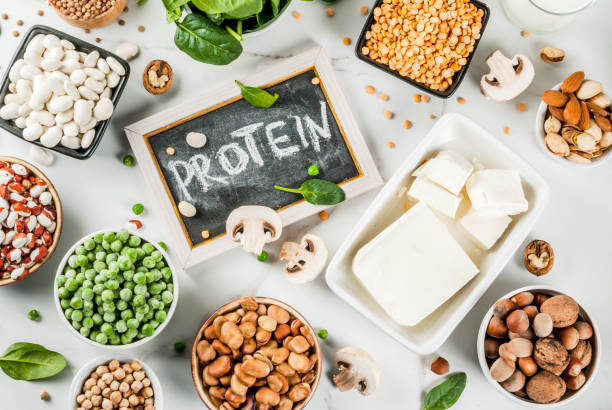




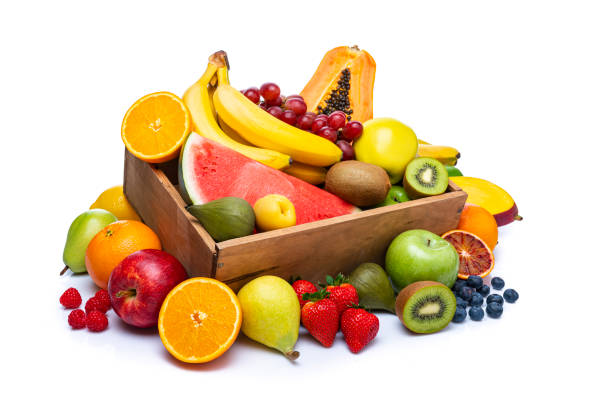
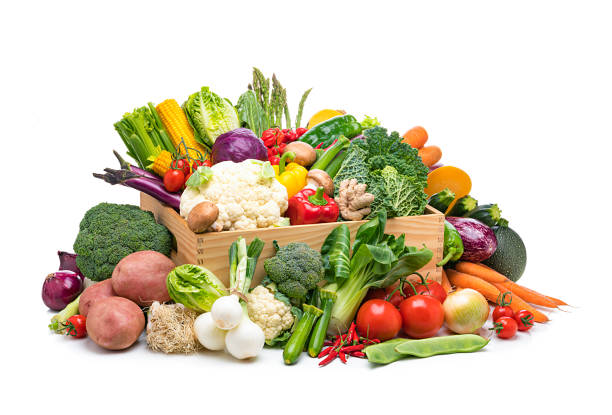
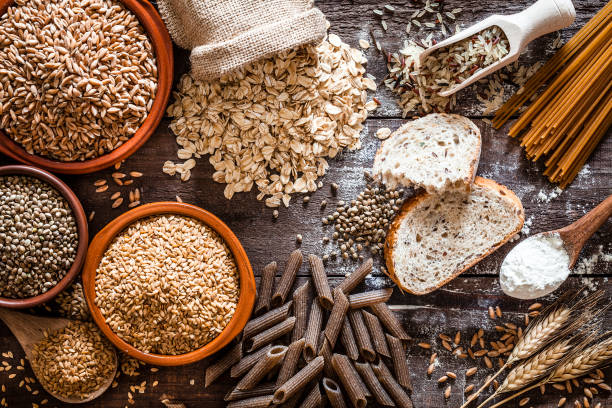
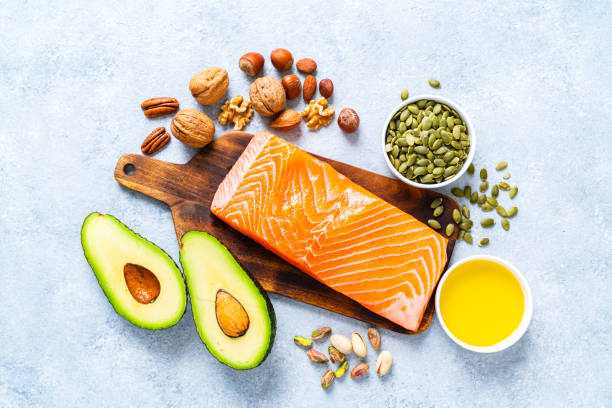

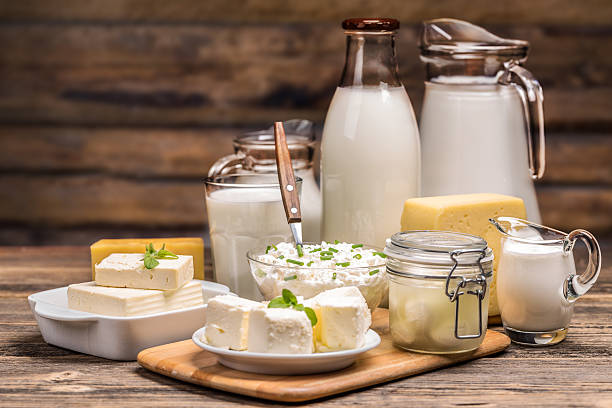
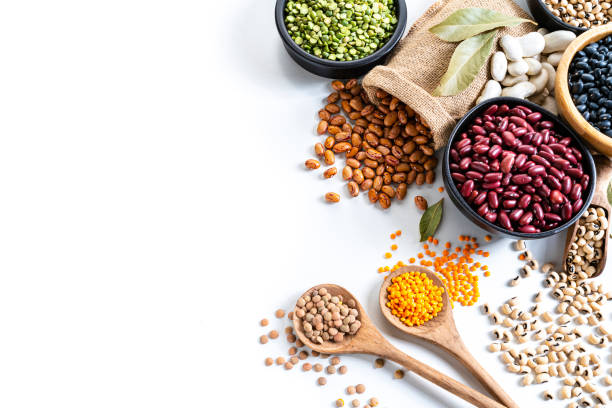
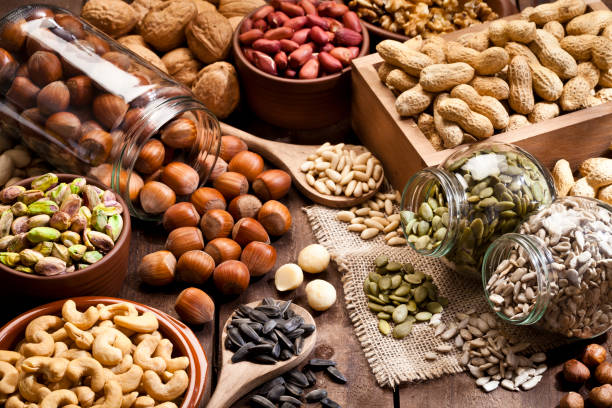


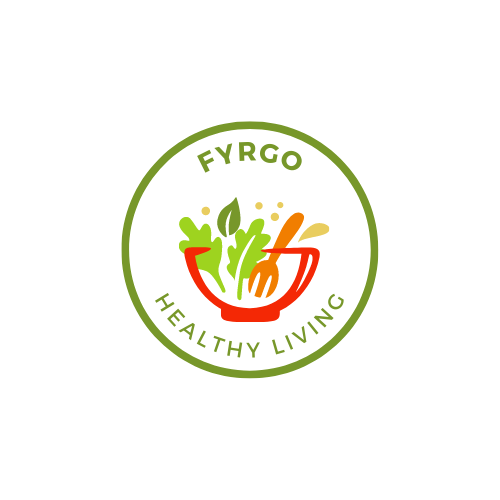
 RSS Feed
RSS Feed